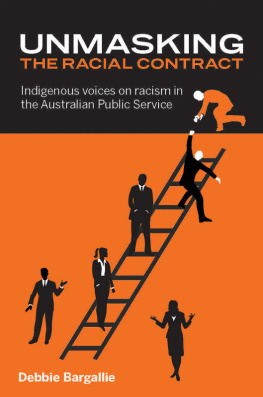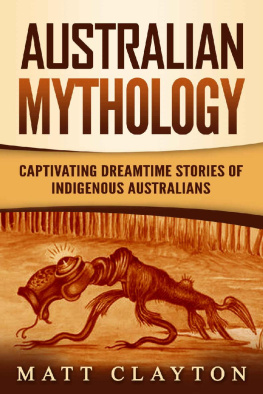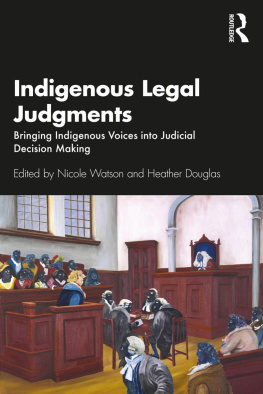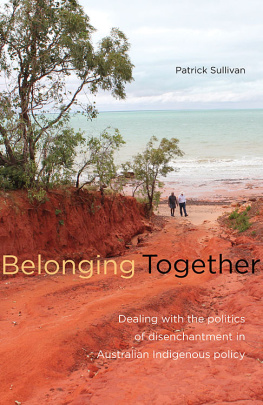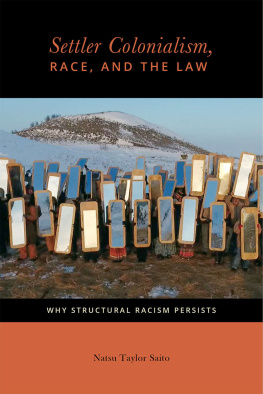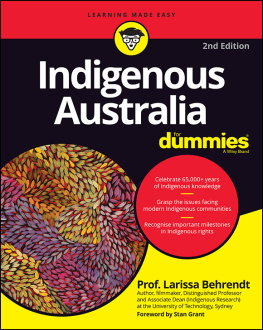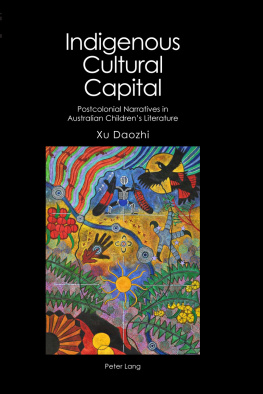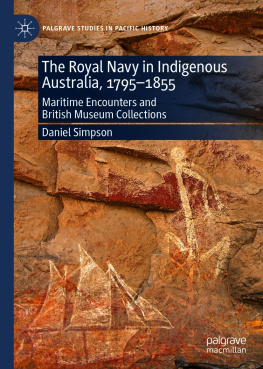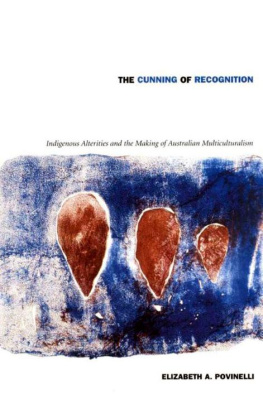Despite a history of conquest, genocide, and expropriation, to say nothing of a multi-decade official White Australia immigration policy, mainstream Australian discourse and scholarship still prefers to conceal the central reality of white racial domination with the evasive and obfuscatory categories of diversity and culture. This courageous and hard-hitting text by Indigenous scholar Debbie Bargallie reveals the ugly truth of systemic racial exclusion behind the liberal faadea lesson not merely in the workings of the Australian Public Service specifically but for the country far more broadly.
Professor Charles Mills,Author of The Racial Contract, City University of New York
This book addresses the critically important, but under-researched, field of racism in the everyday. Using a strong Indigenous methodology the research on which the book is based examines how the Australian non-Indigenous/Indigenous racial contract is enacted in everyday interactions, racial microaggressions and everyday performances. The socio-cultural space the book examines is the Australian Public Service but its theoretical frame, its key findings and its disturbing conclusions can be applied more broadly across Australian society. A key strength of the book was its historical linking, drawing on threads of earlier times, such as the experiences of Charlie Perkins, to show that this is not a new phenomenon, but rather an expected continuation of the older power dynamics of the racial contract, relatively unchanged in either their practice or their outcomes, despite changing rhetoric around race and Indigeneity.
Distinguished Professor Maggie Walter
(PhD, FASSA), University of Tasmania
In Unmasking the Racial Contract, Debbie Bargallie has achieved something that Australian scholarship on the ongoing impact of colonization deeply needs: a sophisticated analysis of the ways in which race continues to frame the everyday experiences of First Nations people under colonialism. Bargallies analysis of how an unspoken racial contract sits beneath the workings of an ostensibly neutral and tolerant institution - the Australian Public Service - will ring true to many racialised people whose interactions with institutions are a daily litany of microaggressions, so often met with denial. As such, Bargallies book sits alongside other vital pieces of scholarship in the international critical race canon and should be widely read, in both Australia and far beyond.
Alana Lentin,Associate Professor of Cultural and Social Analysis, Western Sydney University
Taking as her example that icon of meritocracy, the Australian Public Service, Debbie Bargallies Indigenist critique of Australias racial contract illuminates how race figures in the daily experiences of First Nations employees. As long as First Nations are recognised by Australia as a race, Australians will fiercely dispute when it is fair (recognition) and when it is unfair (racism) to distinguish persons by race. Drawing on yarning with twenty-one public servants, Bargallie conveys their forthright account of what it feels like to be racialised. Her sociology of the racial contract adds nuance to our understanding of recognition.
Emeritus Professor Tim Rowse,
Western Sydney University and the Australian National University
For my dad and mum, Steve and Beryl Bargallie.
Your memories sustain me.
UNMASKING
THE RACIAL CONTRACT
Indigenous voices on racism in the Australian Public Service
Debbie Bargallie
First published in 2020
by Aboriginal Studies Press
Debbie Bargallie, 2020
All rights reserved. No part of this book may be reproduced or transmitted in any form or by any means, electronic or mechanical, including photocopying, recording or by any information storage and retrieval system, without prior permission in writing from the publisher. The Australian Copyright Act 1968 (the Act) allows a maximum of one chapter or 10 per cent of this book, whichever is the greater, to be photocopied by any educational institution for its education purposes provided that the educational institution (or body that administers it) has given a remuneration notice to Copyright Agency Limited (CAL) under the Act.
The opinions expressed in this book are the authors own and do not necessarily reflect the view of AIATSIS or ASP.
Aboriginal and Torres Strait Islander people are respectfully advised that this publication contains names and images of deceased persons, and culturally sensitive information.
Aboriginal Studies Press is the publishing arm of the Australian Institute of Aboriginal and Torres Strait Islander Studies.
GPO Box 553, Canberra, ACT 2601
Phone: | (61 2) 6246 1183 |
Fax: | (61 2) 6261 4288 |
Email: |
Web: | www.aiatsis.gov.au/asp/about.html |
Bibliography
Includes Index
| ISBN: | 9781925302653 (pbk) |
| 9781925302660 (ebook: pdf) |
| 9781925302677 (ebook: epub) |
Typeset in Australia by Upside Creative
Printed in Australia by SOS Printing, Australia
Foreword
It has always astounded me why so many of our people do not crack the glass ceiling of the Australian, state or territory public services. The author of this book, Debbie Bargallie, is an insider and a situated knower, having had a long and distinguished career in the Australian Public Service (APS). Her motivations are personal and professional in attempting to understand why Indigenous employees languished on the lower rungs of the APS ladder and why so few of us arrived at the top, why so many of us have left.
This book explores illuminating interviews with some twenty-one First Nations public servants. Not surprisingly, there are some honest and scathing appraisals, particularly around structural and personal racism. Despite this, their narrative is one of solidarity, survival and resistance.
Many of the circumstances and messages conveyed are similar to the ones I, in fact, experienced decades ago in the 70s and 80s when I worked in the APS for twelve years in my early career like the usual dilemma of Aboriginal affairs, where little has changed.
Dr Bargallie positions the work of the late pioneer public servant Charles Perkins, with whom, ironically, I commenced my APS career in 1984 in Canberra. He was my direct supervisor, great mentor and fierce advocate, teaching me the pros and cons of how to survive the public service.
Reading this book was like reading my own biography, as I feel sure will be the case for most Indigenous past and present public servants, along with those constant ah-ha moments, such as being reminded of being too sensitive when I called out racism at my workplace when I was sixteen. No one stood by me. It could have been that I was the first Aboriginal person my fellow non-Indigenous workmates had ever met and that they had no experience, language or expertise to handle the situation. They therefore became enablers and complicit in their non-actions. It pleases me to know that in Unmasking the Racial Contract many of the research project participants challenged racisms regardless of the consequences.

